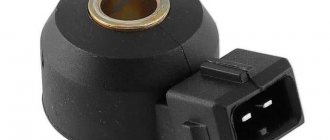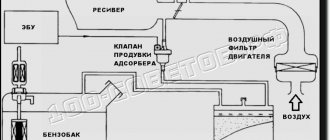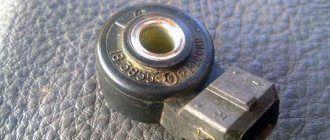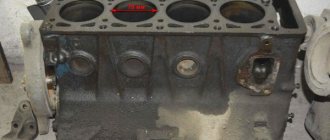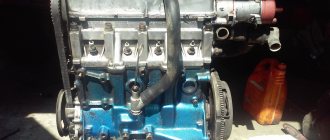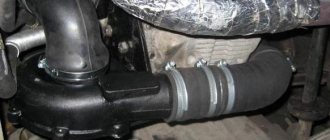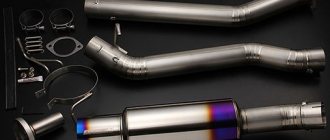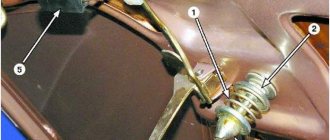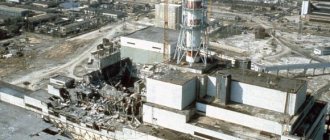The exact definition of the word “detonation,” which can now be found, is in the encyclopedia of the magazine “Behind the Wheel.” True, there the definition itself is called “cause” in order to emphasize the importance of the detonation phenomenon. So, engine detonation is the spontaneous ignition of fuel in those areas that are farthest from the spark plug. That’s it, simple and clear – no “explosions” or “tapping of fingers.” True, in reality, detonation manifests itself with a characteristic metallic sound. It can also be called “clatter”. The causes of detonation of an injection engine are discussed further.
What can detonation lead to?
- Sudden overheating of the engine;
- Reduced engine power;
- Increased fuel consumption;
- Failure of the cylinder-piston group;
- Corrosion of engine cylinders and pistons;
- Burnout of the cylinder head gasket;
- Piston cracks;
- Breakthrough of the BC head;
- Damage to the earbuds.
Recommendations from experienced motorists
In the manufacture of automobile engines, all parts have certain parameters designed for operation in nominal temperature conditions. When an engine detonates, the vehicle is subjected to shock loads that exceed permissible values. Uneven distribution of fuel and oxygen masses leads to unexpected strong explosions.
To identify and prevent cases of detonation, it is recommended to listen to the uniformity of the sounds of the running engine. If unusual tapping or noise is detected, you must stop and turn off the engine. Next, you need to determine the source of the unknown sounds and try to eliminate it.
To avoid devastating consequences, detonation must be constantly monitored. The main thing to remember is that during normal operation there should not be even slight changes in the sound of the motor.
Poor quality fuel
If the octane number of the poured fuel is less than required for a given engine, then the detonation process is inevitable.
If the octane number of the fuel does not match (as a rule, it is less than needed), the process of active combustion occurs, this process is so fast that combustion resembles a small explosion inside the chambers.
For example, according to the instructions, you should fill the tank with AI-98 gasoline, and the driver fills it with AI-95.
A large amount of thermal energy is released, and under pressure, the release of energy leads to detonation, i.e. internal micro-explosion, which is felt by the driver in the form of detonation shocks.
In addition to a mismatch in the octane number of the fuel, detonation can be caused simply by low-quality fuel that is produced in violation of all requirements and standards.
Some drivers, in order not to use more expensive high-octane fuel, but at the same time prevent engine detonation, install a later ignition.
According to experimenters, this action saves the situation, since the fuel mixture begins to ignite on time and burns completely without releasing excess heat and creating more pressure in the cylinders.
But each driver does this at his own peril and risk.
What is engine detonation
In some cases, the air-fuel mixture ignites before the spark plugs produce a spark. This phenomenon, accompanied by shock combustion of fuel, is engine detonation. The enormous rate of fuel combustion is associated with the ignition of the entire volume simultaneously, and not sequentially from a spark. In addition, ignition begins earlier than the calculated crankshaft angle, when the piston is still moving towards top dead center (TDC). The ignited gases rapidly expand, but the rising piston tends to compress them. As a result, the pressure in the combustion chamber is many times higher than the calculated value.
The shock wave from the mini-explosion (which, in essence, is the ignition of the air-fuel mixture) hits the cylinder walls and the bottom of the piston, which rises against the gases. This impact generates sound waves, which the driver perceives as an unpleasant metallic knock or engine ringing.
Additive Suprotek Active Gasoline for a new gasoline engine
Additive for gasoline and gas engines with mileage up to 50,000 km. Can be used for forced and turbocharged engines.
more reviews
Ignition earlier
Another reason why detonation may occur may be pre-ignition.
The ignition settings are such that the air-fuel mixture ignites too early, which leads to overheating and provokes internal overheating of the engine and parts, thereby leading to the detonation process.
To eliminate such detonation, you need to adjust the ignition and check its angle. The cause of detonation may be the spark plugs.
Read on the topic: Adjusting the ignition of the VAZ 2105.
If they do not meet the technical specifications recommended by the engine manufacturer, or are simply of poor quality.
To do this, they need to be checked and, if necessary, replaced.
How to eliminate engine detonation
By understanding the causes of engine knock in various situations, you can decide how to deal with this phenomenon.
Inappropriate octane number
Do you deliberately buy gasoline with an octane rating lower than that recommended by the engine manufacturer? This will cause engine detonation sooner or later. Trying to save a few tens of rubles, you can end up with very expensive repairs.
It happens that the cause of engine detonation is refueling at an untested gas station. Sometimes gas station owners artificially increase the octane number by adding various chemical components to gasoline. Isooctanes evaporate easily, so the percentage of heptanes in the fuel quickly increases and it begins to detonate.
Make sure that the octane number of the flammable liquid that you pour into the tank of your car corresponds to the value recommended by the manufacturer. If you suspect a discrepancy, drain the suspect fuel. Use a proven gas station.
Incorrectly set ignition
If engine detonation appears after an attempt to adjust the ignition angle, then the reason is due to incorrect settings. Even masters in a car repair shop can make mistakes, especially since an error is possible with unqualified intervention.
Contact only trusted technical centers and be very careful about advice to change the ignition timing. It’s better not to touch the manufacturer’s factory settings at all unless you are absolutely sure that they have gone wrong.
The same can be said about manipulating the leanness of the air-fuel mixture. Often this operation leads to detonation of the VAZ, UAZ or other brands of cars. Think twice before changing factory settings.
Faulty or mismatched spark plugs
If your car's engine begins to detonate after replacing the spark plugs, check whether they comply with the manufacturer's recommended parameters. If the specifications are not suitable, replace with a product that matches the parameters.
Detonation when stopping the engine
If the power unit continues to operate for up to 20 seconds when the ignition is turned off, it means that carbon deposits have accumulated on the cylinder walls. Often these deposits become hot and act as a wick, causing self-ignition of the air-fuel mixture even in the absence of a spark from the candles.
To prevent this phenomenon, try to regularly load the power unit of your iron horse. Driving at higher speeds in maximum gear will free the walls from carbon deposits.
Such a product as “Fuel System Cleaner” shows good results in the fight against engine detonation due to carbon deposits. The composition is added directly to the fuel in a certain proportion. This is a one-time use product.
In the future, it is recommended to use the SGA Suprotec additive, which can be used regularly. It lubricates and protects all elements of the vehicle’s fuel system from corrosion, and prevents carbon deposits due to complete combustion of the fuel.
Diesel fuel system cleaner "Suprotek"
Additive for comprehensive cleaning of the fuel system of diesel engines from all types of carbon deposits and deposits.
more reviews
Gasoline fuel system cleaner "Suprotek"
Additive for cleaning all elements of the gasoline fuel system. Injector and valve cleaner.
more reviews
Engine overheating
Sometimes the cause of detonation is engine overheating. If the engine detonates only under load, the problem may be high temperature. Measure the coolant level; if it is low, add it immediately. If everything is fine with the coolant, check the functionality of the thermostat and fan. Sometimes you have to flush the radiator.
Incorrect driving style
Ignoring shifting gears from up to down when exiting a turn.
When overcoming a climb of medium duration, when at the beginning of the climb, 5th gear seems to be enough, but at the end of the climb it is not, but the driver still continues to squeeze the last forces out of the engine, without bothering to change to 4th or 3rd gear.
So you get the knocking of metal on metal (similar to the knocking of metal balls) inside the engine, this is how detonation of the latter mainly manifests itself.
In some car models, special sensors are installed that inform the driver through electronic devices about this phenomenon itself and its frequency.
The main signs of detonation
They say that detonation is immediately recognized by a characteristic sound - a clattering sound, a ringing sound, a metallic knock. The sources of ignition are located away from the spark plug, and a blast wave is formed in the chamber volume at increased pressure. Outwardly, this manifests itself as if the walls of the cylinder are being hit with a hammer from the inside.
Dependence of pressure on phase, graph
In addition, the color of the exhaust changes when detonation occurs - it becomes dark black. The temperature of the exhaust gases also changes and decreases. But it will be difficult to notice these phenomena, and if detonation occurs for a short time, it will be practically impossible. Speaking about stable detonation, it should be noted that it can only be caused under load.
There is no point in opening the hood and trying to “accelerate” while monitoring the exhaust - most likely, the effect will not appear. There is also no point in listening to the engine - it needs additional load. Well, few people can hear the “knock of fingers” when driving at speed.
In practice, only indirect signs are often used - failures, overheating, etc. We list them in the chapter on reasons.
Detonation or spontaneous combustion of the mixture
Due to inexperience, these two phenomena can be confused.
Self-ignition of the mixture occurs as a result of severe overheating of the engine. At the same time, at the end of the compression stroke, the temperature of the fuel mixture becomes higher than normal, and it flares up uncontrollably.
Also, if the engine is heavily coked, then hot carbon deposits on its walls as a result of contact with the fuel mixture can ignite it.
To separate these two phenomena, you need to turn off the engine by turning off the ignition. If the engine does not stall immediately, then most likely a phenomenon called detonation is occurring inside it.
Causes of engine detonation
The engine can detonate in any car: new, old, modern or no longer in production. The type of power unit does not really matter, whether it is carburetor or fuel injection.
On new cars, a special engine knock sensor is installed (only for injection power units). This device allows the on-board computer to regulate the operation of the engine so that it does not detonate.
Modern car engines operate at high compression ratios, so the risk that the air-fuel mixture will detonate is quite high. If the engine knock sensor is faulty, the ECU cannot effectively regulate the operation of the unit. Problems will not keep you waiting.
The most common causes of engine detonation during acceleration, at speed or at idle:
- fuel of low quality or with an inappropriate octane number,
- too much ignition advance,
- lean air-fuel mixture,
- carbon deposits on the cylinder walls,
- low-quality or unsuitable spark plugs,
- engine overheating due to a malfunction of the cooling system.
Let's look at each point in detail to understand the root cause. Then it will be easier to fix the problem.
Fuel with the wrong octane number or low quality
If gasoline with an octane rating lower than recommended enters the engine, detonation occurs with almost 100% probability. The car manufacturer calculates the compression ratio for a certain type of fuel, so the use of low-quality or unsuitable octane fuel leads to engine detonation at idle or during acceleration.
The quality of the fuel can be corrected using the SGA additive.
Detergent additive for gasoline "SGA (SGA)"
Cleans and lubricates fuel pumps and injectors, extends their service life. Improves injection, which reduces fuel consumption and increases dynamics. Suitable for any petrol systems, including TFSI, TSI, GDI, MDI.
more reviews
Incorrectly configured ignition
In an effort to increase torque, some craftsmen change the factory settings of the ignition system. If the advance angle is set too high, the spark plug will produce a spark before the piston approaches TDC. Ignition will occur prematurely when the fuel is not completely mixed with air.
Faulty spark plugs
Sometimes the cause of detonation of a VAZ engine or another brand of car is faulty or unsuitable spark plugs. In this case, the spark may not be generated as expected by the motor manufacturer. Untimely sparking of a spark plug is one of the common causes of problems with ignition of the air-fuel mixture.
Lean air/fuel mixture
In pursuit of efficiency, motorists can deliberately lean the air-fuel mixture. This is another reason why engine detonation occurs. Due to insufficient concentration of fuel vapor, a spark cannot ignite the mixture. During the next injection cycle, on the contrary, fuel vapors become higher than normal. An overly rich mixture ignites prematurely due to compression.
Carbon deposits on cylinder walls
Often the cause of engine detonation at speed is the presence of deposits on the inner surface of the combustion chamber. The soot heats up and acts as a wick, igniting the air-fuel mixture. In addition, carbon deposits increase the compression ratio and fuel with a given octane number ignites earlier due to an increase in compression temperature.
Cleaning the engine is possible with a special long-term engine flush.
Long-term engine flushing "Suprotek Aprokhim"
Over the course of 200 kilometers, it gently and gradually cleanses all parts of the engine from contaminants and helps restore the mobility of the piston rings. Safe for rubber and plastic parts.
more reviews
Cooling system malfunction
Fuel also detonates if the cooling system in the power unit is faulty. With this problem, engine detonation occurs during acceleration. Under load, the engine overheats, the internal space of the combustion chamber heats up to a temperature where gasoline vapors spontaneously ignite.
Question answer
Perhaps, after reading hundreds of forums and sifting through a mountain of specialized literature, the reader will still not find the answer to his question. But before you take your car for diagnostics, you can familiarize yourself with the most common questions regarding engine operation. The answers are also given here:
- Q: Could detonation be associated with the appearance of carbon deposits?
- A: In water-cooled engines, carbon deposits form in any case. The thickness of the layer changes all the time, but the controller is needed to adapt to any changing conditions. This is also true for carburetor engines if they are controlled by an ECU.
- Q: How does the glow number of spark plugs affect the appearance of glow ignition?
- A: If you install a spark plug that is “too cold,” you will get carbon deposits on the electrode and on the body. Installing “hot” spark plugs is a more complicated case. If the glow number is less than recommended, then overheating of the spark plug body will not necessarily lead to glow ignition. However, igniting the mixture with hot ceramics is a probable process. In practice, you should also pay attention to the correct installation (see figure).
- Q: Previously, detonation occurred on a hot engine. After changing the gas station everything went away. Perhaps the controller is faulty?
- A: Most likely the knock sensor, its wiring, etc. are faulty. Increase the speed to 3500 rpm - the Check lamp should turn on immediately.
An illustration of the second question is given below:
Errors when installing spark plugs
Perhaps readers will add to the list by leaving intelligent comments and reviews.
Dangerous consequences of detonation
Responsible and attentive drivers to their vehicles, at the slightest, isolated uncharacteristic sounds during the operation of the power unit, take effective measures to eliminate malfunctions: letting the situation take its course can result in serious problems, such as major repairs, which imply significant financial costs. Detonation of the unit is not an exception, but rather the rule in this situation, since the uncharacteristic sound of the engine and increased fuel consumption are only the “tip of the iceberg” with such a problem. Incorrect combustion of the mixture in the cylinders, in addition to the sound explosion, is accompanied by the impact of a wave on the components of the unit in the form of vibration, which destroys the engine from the inside. The consequences of engine detonation are as follows:
- A drastic decrease in engine performance, caused by rapid wear of the crank and connecting rod elements.
- Destruction of pistons and internal cylinder walls as a result of systematic overheating of the power unit.
- Burnout of the engine block gasket located under the cylinder head.
The final result of the destructive effect of detonation is absolute breakdown of the engine, followed by expensive and time-consuming repairs.
Valves are tight - signs of valve clearances that are too small
The gaps in the engine valve mechanism are too small (the valves are clamped) - a malfunction that needs to be eliminated as quickly as possible, without putting it aside.
There are at least two reasons for this - a valve plate with a small thermal gap will, as the engine warms up, be loosely pressed against its seat in the block head, since the valve stem undergoes thermal expansion and lengthens. This leads to burning and destruction of the edge of the plate and its seat in the head. The valve burns out.
The second reason complements the first. The resulting gap between the valve plate and the seat in the head leads to loss of tightness of the combustion chamber. And the presence of a certain pressure in it at the end of the compression stroke (compression) is one of the conditions for efficient combustion of the fuel mixture and obtaining maximum efficiency from the engine. The relationship here is simple - compression drops - engine power drops.
Signs of too small engine valve clearances
— The engine starts poorly
If in at least one cylinder of a car engine the compression is reduced (and with small valve clearances it is reduced in almost all), you can forget about starting the engine on the first try, since the fuel mixture in this case does not ignite well and burns poorly.
— The engine idles
If you add to poor ignition and combustion of the mixture a variation in the compression value for the cylinders, then the engine will idle, and in particularly advanced cases it may try to stall from time to time. It is not possible to adjust and stabilize the idle speed using the “quality” and “quantity” screws of the carburetor.
— Shots into the carburetor
If the intake valve is clamped and the gap at its plate is large, then the burning fuel mixture may be released into the engine intake manifold and carburetor. All this is accompanied by servants and even shots, frightening passers-by and the driver himself.
— Shots into the silencer
Similar pops and shots can be produced in the engine exhaust manifold and car muffler, since if the exhaust valve is clamped, the gap at its plate will be large and the burning fuel mixture will be thrown out through it. See “The muffler shoots and slams (causes not related to the carburetor).”
— Dips and jerks when pressing the gas pedal
Engine cylinders that work every once in a while will not allow the car to fully accelerate when you press the gas pedal. In response, the driver will receive dips and jerks, and not pick-up.
— Reduced power and throttle response of the car engine
Low compression in the cylinders due to clamped valves, as noted earlier, will not allow you to get the desired power and throttle response from the engine, since the fuel mixture in the combustion chambers will not burn efficiently (due to low pressure), and sometimes even not ignite at all (misfires). ignition).
What can be done if there is a strong suspicion that the valve clearances are too small?
It is necessary to check the thermal clearances of the valves and, if necessary, adjust them according to the instructions.
Adjusting valves on the VAZ 2108, 2109, 21099 engine
A preliminary assessment of the condition of the valve mechanism of a car engine can be made by performing a compression measurement or a special in-place test.
Measuring compression in carburetor engine cylinders
If the situation is neglected and the valves are burnt out, you will have to remove the cylinder head and replace them.
Notes and additions
- Thermal clearances in the valve mechanism of engines 2108, 21081, 21083, 2111: inlet - 0.15-0.25, exhaust - 0.30-0.40 mm.
- Thermal clearances in the valve mechanism of engines 2101, 2103, 2121, 21213 and their modifications: inlet - 0.14-0.17, exhaust - 0.14-0.17 mm.
— We select washers for adjusting valves for adjusting valves: “Washers for adjusting valves.”
Source
Using a knock sensor
To determine detonation processes, a knock sensor installed on a special plane on the cylinder block is used. When recording shock loads, the sensor's accelerometer generates electrical signals and transmits information that is processed by the control unit.
The strength of the impulse depends on the intensity of explosive combustion in the cylinders.
... about the operation of the knock sensor
The controller adjusts the ignition timing, the composition of the fuel mixture, or changes the position of the camshafts, which reduces the duration and completely eliminates detonation.
The sensor is equipped with a housing made of impact-resistant plastic that can withstand prolonged heating up to +150°C and above; a bolt is used for fastening. The threaded connection allows you to press the sensitive element to the surface of the block. On the side of the case there is a connector for connecting the wiring harness.
If a sensor in the instrument cluster breaks down, the Check Engine indicator turns on, and an error is recorded in the control unit’s memory. Some injection engines (for example, for classic VAZ models) are not equipped with a sensor due to their design.
Troubleshooting options
If there is a problem in the functioning of the engine, it must be corrected as soon as possible in order to avoid more serious disruption to the operation of the unit. If there is a problem, then there are options for eliminating it. Let's try to figure out how to eliminate engine detonation and whether this can be done without necessarily contacting professionals at a service station. The simplest solutions to the question of how to eliminate engine detonation follow directly from the main root causes that provoke its occurrence. To begin with, it’s worth comparing the facts when unpleasant symptoms from engine operation appeared. If detonation began immediately after the next refueling of the car, most likely the reason lies in the quality of the fuel. In such a situation, it would be best to completely drain the low-quality liquid and then refuel only at certified gas stations, buying fuel that is recommended for use by the automaker. The second useful advice for car owners who are faced with the problem of engine detonation is to check the spark plugs and, if necessary, replace them.
Owners of carburetor cars, when detonation occurs, need to check the ignition angle, the incorrect position of which can provoke a problem. In injection systems, such a malfunction is solved by the control unit, receiving data from the knock sensor in automatic mode. When the system cannot automatically cope with the problem, a warning about emergency mode appears on the machine's dashboard, which requires qualified intervention. When removing detonation and manipulating the ignition angle, make sure that unauthorized intervention in the operation of the engine does not lead to its accelerated wear. Remember, in order not to look for methods to solve the problem, how to eliminate engine detonation, it is important to carry out effective preventive procedures that prevent the occurrence of malfunctions in the operation of the unit. Prevention of detonation consists of the following measures:
- Carrying out regular maintenance of the cooling system of the machine, which will prevent engine overheating and, accordingly, will be a reliable prevention of engine detonation.
- Maintain the engine in a timely manner with mandatory oil changes according to the regulations.
- To avoid the formation of carbon deposits in the engine, subject it to periodic loads, which increase the efficiency of heat removal from the unit.
- When carrying out engine repairs and replacing replacement system elements, purchase only parts that meet the requirements set out in the technical data sheet of the car, giving preference to purchases at certified points.
Why does a cold engine ring?
Detonation on a cold engine, if it does occur, will most often be caused by one factor - too lean a mixture in one or more cylinders. And then we need to look at what caused it. The most common of these reasons is clogged injectors. The volume of fuel supplied during the intake stroke must correspond to the numbers calculated by the controller program. If a blockage occurs, this rule is not followed.
Injectors sometimes need to be cleaned
It must be said that as it warms up, the effect may disappear completely. You need to check the coarse filter, then the filters on all injectors, but clogging of the injector itself is a rather serious problem. And it will be financially expensive to fight it.
The ECU tries to compensate for the blockage by varying different parameters. In this case, detonation does not occur, but power decreases. But the “regulation” that was discussed also has its limits - if there is a significant degree of contamination, it does not help. Then the Check lamp comes on and the engine starts to “ring.”
Let detonation be observed when starting a hot engine - it appears and immediately disappears. The same effect can be detected during a “cold” start. In this case, it can be argued that the knock sensor is faulty. The sensor itself rarely fails, and most likely the problem is in the wiring. The presence of a malfunction will be indicated by the inclusion of the Check lamp. But while the speed remains low, the light does not work on some engines.
The occurrence of detonation is monitored by just such a sensor.
The ECU, as we said, regulates two parameters: ignition timing, degree of mixture saturation. If the signal read from the sensor is completely absent, then the ECU sets the values to a “reasonable minimum”. The mixture will not be too lean to prevent detonation. But in the first second, the ECU “does not know” that there is no signal from the sensor, and the parameters are brought “to the limit”.
Carry out the experiment: disconnect, and after 5 minutes reconnect any battery terminal, start. Then the engine speed must be increased to 3000 rpm. Detonation that lasts 1-2 seconds should lead to one thought: there are faults in the sensor circuit, they need to be looked for.
Briefly about the main thing
After stopping the engine, there can be no detonation - this unstable “jerking” is called dieseling. This phenomenon does not carry anything dangerous in itself. The reason for its appearance is the flow of fuel into the cylinders when the ignition is turned off. It occurs, as a rule, on carburetor engines with a faulty EMC.
Detonation occurs exclusively when the engine is running and is accompanied by a characteristic metallic ringing. It appears when driving at low speeds under load, when starting off, after refueling with low-octane gasoline and due to incorrect setting of the ignition timing on a carburetor engine. On an injection power plant, the engine knock sensor and the ECU are responsible for the latter.
Drivers have to deal with the effect of uncontrolled combustion of fuel in the cylinders of power units in the form of explosions. As a result of ultra-high temperatures and enormous pressure, a powerful explosive shock wave occurs, which is called “engine detonation.” It is accompanied by an instant release of large amounts of energy and destruction of varying severity.
